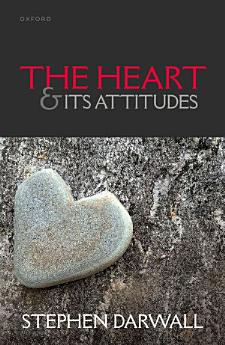The Heart and its Attitudes
Abr 2024 · Oxford University Press
E-book
208
Mga Page
family_home
Kwalipikado
info
reportHindi na-verify ang mga rating at review Matuto Pa
Tungkol sa ebook na ito
Philosophers don't often write about the heart. At least, analytical philosophers don't. Why is this? Philosophers are said to live life “in their heads” rather than “from their hearts.” But even if that is so, why don't they think and write about the heart? Moreover, it can hardly have escaped philosophers' attention that matters of the heart are central to what we human beings value most about our lives, including our lives with animals. Philosophers write a lot about friendship and love, but they tend to do so in terms that leave out heartfelt connection. They speak rather of commitment to one another and each other's well-being, or taking each other as ends, or sharing deliberative standpoints or living life together, or a whole host of other topics, and much less about mutual emotional vulnerability and sharing and being in one another's hearts. Surely one explanation of philosophers' reticence is that talk of “the heart” seems unavoidably metaphorical. It turns out to be easy enough, however, to cash the metaphor in if we simply take “heart” refers to a cluster of emotional susceptibilities that have an essentially reciprocating structure. The heart aims at heartfelt connection-at shared experience of joys and sorrows, hopes and fears, and other personal emotions. We seek naturally to share these feelings with others and must suppress our natural tendencies if we wish to avoid doing so. Our heart's wish is to be open to other hearts in the hope that they will be open to ours, and thereby us, in return. This book is a systematic treatment-perhaps the first-of “attitudes of the heart”-remorse (versus guilt), love, trust, gratitude, personal anger (versus righteous anger), jealousy, and others-and their role in mediating personal relationship, attachment, and connection. This is obviously interesting in its own right, but it also shows how heartfelt attitudes mirror more extensively studied “reactive attitudes” of guilt, resentment, and blame (“attitudes of the will”). Whereas the latter mediate moral relations of mutual respect and accountability, attitudes of the heart are the currency of heartfelt connection and personal relationship.
Tungkol sa may-akda
Stephen Darwall is the Andrew Downey Orrick Professor of Philosophy at Yale University and the John Dewey Distinguished University Professor Emeritus of Philosophy at the University of Michigan. The author of numerous books and articles on moral philosophy and the history of ethics, he has been a member of the American Academy of Arts and Sciences since 2001 and is a founding co-editor of Philosophers' Imprint. His books include The Second-Person Standpoint, Modern Moral Philosophy: From Grotius to Kant, Impartial Reason, Philosophical Ethics, Welfare and Rational Care, and The British Moralists and the Internal 'Ought': 1640-1740.
I-rate ang e-book na ito
Ipalaam sa amin ang iyong opinyon.
Impormasyon sa pagbabasa
Mga smartphone at tablet
I-install ang Google Play Books app para sa Android at iPad/iPhone. Awtomatiko itong nagsi-sync sa account mo at nagbibigay-daan sa iyong magbasa online o offline nasaan ka man.
Mga laptop at computer
Maaari kang makinig sa mga audiobook na binili sa Google Play gamit ang web browser ng iyong computer.
Mga eReader at iba pang mga device
Para magbasa tungkol sa mga e-ink device gaya ng mga Kobo eReader, kakailanganin mong mag-download ng file at ilipat ito sa iyong device. Sundin ang mga detalyadong tagubilin sa Help Center para mailipat ang mga file sa mga sinusuportahang eReader.






